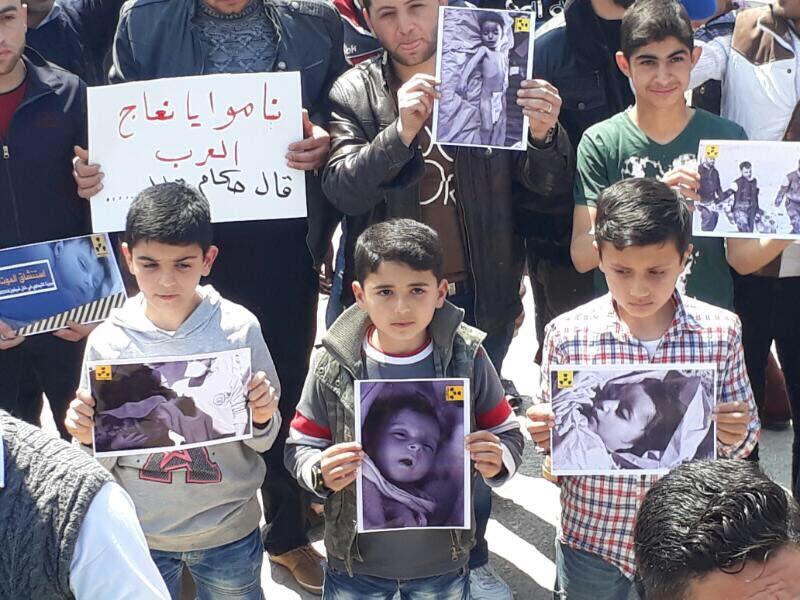The US strike against Assad was justified – now for the hard part
The Assad regime's use of chemical weapons ought to have consequences, and one of them ought to be to renew the search for peace

The use of chemical weapons is a special crime. It is prohibited by international law. It follows that the sarin gas attack in Idlib, Syria, on Tuesday, ought to have consequences. There is no point in a prohibition of such weapons if it is mere words. On those limited grounds, therefore, it can certainly be argued that the US strike against Bashar al-Assad’s regime was justified.
We understand the objections to Donald Trump’s use of cruise missiles to disable the Shayrat airbase: there is a risk that it will make the war in Syria worse or longer; it is not ideal to have the US acting unilaterally as the world’s police force, especially when its chief constable is President Trump; and military action, unless it has to be immediate, ought to be subject to democratic approval, in this case by Congress – just as Mr Trump himself insisted when Barack Obama was contemplating it in 2013.
None of those objections, however, is decisive. The Syrian conflict is unlikely to be brought to an end without a political agreement, and it is unclear whether the US strike makes that more or less likely. It is at least reasonable to imagine that anything that constrains the power of Mr Assad and Russia in Syria makes them more likely to come to the negotiating table. Nor does one strike – by a President, remember, who is opposed to American entanglement in the Middle East – mean that the West has “taken sides” in the Syrian civil war, except the side of those opposed to weapons of indiscriminate civilian slaughter.
No one can be comfortable with the idea of America as the enforcer of moral norms, but if there are to be consequences for the use of chemical weapons, who else would administer them? It might also, in theory, have been preferable for Congress to have voted on the strike, but speed is important. The longer the gap between action and reaction, the easier it would be for Mr Assad and Vladimir Putin to argue – as they did anyway – that the punitive strike by the US was an act of premeditated aggression. To launch a limited strike within two days of the use of chemical weapons is more clearly a direct response to the breach of international law, and so is more likely to deter future transgressions.

Other objections can be dismissed. It has been suggested, most prominently by the Russian government, that the sarin attack in Idlib was the responsibility of anti-Assad forces. While we are not in a position to be completely certain about Mr Assad’s complicity in this case, the evidence that it was carried out by his forces is strong. And, of course, he has done it before, which is one of the most powerful arguments for not letting it go this time. In any case, Mr Assad’s record of terrorising and killing civilians is heinous enough.
In the end, the case for action is stronger than the case for inaction. The US and its allies have tried both. In 2013 President Obama said that the use of chemical weapons was a red line and he warned the Syrian President not to cross it. When Mr Assad did, however, he, Congress and the British House of Commons shrank from giving his words meaning. Those who argued then for staying out of the Syrian quagmire claimed vindication the following year when Mr Assad gave up chemical weapons stocks in a deal brokered by Russia, the UN and the Organisation for the Prohibition of Chemical Weapons. But this week’s atrocity in Idlib exposes the hollowness of any deal unless it is backed up by force.
The strike against Mr Assad in itself will not bring the parties in Syria closer to each other; it will not in itself shorten the war; it may not in itself deter other leaders such as Kim Jong-un from using unconventional weapons; and it may not guarantee that Mr Assad will never use chemical weapons again. But it should act as a spur to the international community, which for too long has simply assumed that there is nothing that can be done about Syria, to renew the pressure for a political settlement. It is time to rediscover the political will for peace.
Join our commenting forum
Join thought-provoking conversations, follow other Independent readers and see their replies
Comments
Bookmark popover
Removed from bookmarks